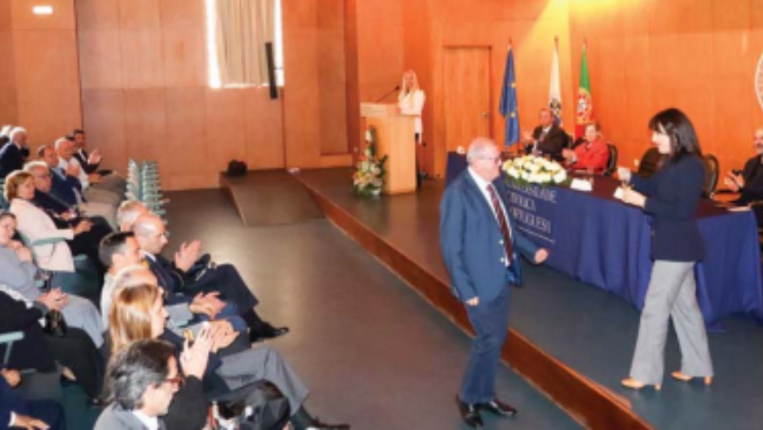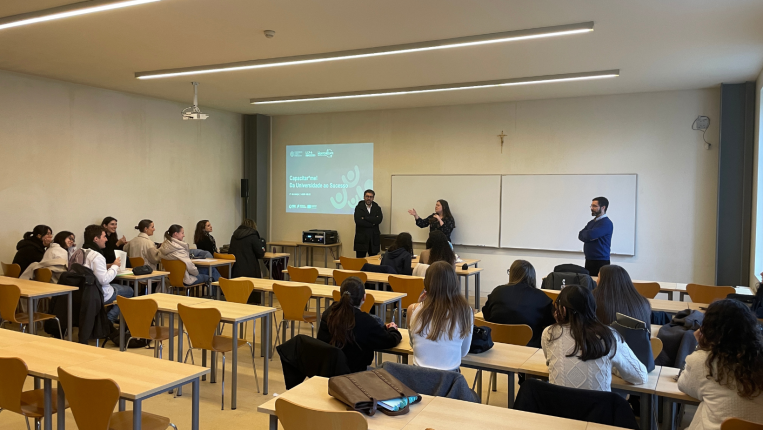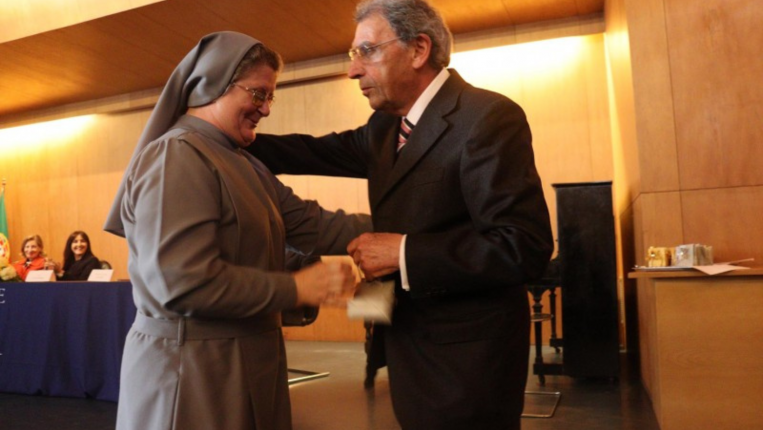
The Asilo de S. José, in Braga, celebrated 175 years of life and service to the elderly yesterday, with gratitude to its management and staff. At the solemn session, which took place in the Aula Magna of the Catholic University, the chairman of the board, José Luís Cunha, took advantage of the presence of the Secretary of State for Social Security to demand more justice in social support, especially by increasing contributions.
As it was such a round and significant date, the session was attended by many different organisations from Braga and beyond. These included Father Lino Maia, president of the National Confederation of Solidarity Institutions; Father Manuel Antunes, president of the Braga District Union of Private Social Solidarity Institutions; councillors from Braga City Council, as well as the aforementioned Secretary of State, Clara Marques Mendes.
Asked by Diário do Minho what gift he would like to receive, the president of the Asilo de S. José was direct: ‘the best gift we could receive is for the public services to understand the difficulties the institutions are experiencing and, as far as possible, help more from a financial point of view than they do. Because the costs of running an institution like this are very high and have got much worse,’ he lamented.
He pointed out that the average cost of a patient exceeds 1,600 euros, ‘Social Security figures’, while there are patients with pensions of 500 or 700 euros. In other words, even with the state contribution, the institutions are left with a deficit of around 20 per cent at the end of the year.
José Luís Cunha also spoke about the problem of illnesses in old age, which turn nursing homes into ‘authentic long-term care units’, without being properly prepared for the purpose.
In response, Clara Marques Mendes guaranteed that the state has already recognised the problem and is taking action. On the one hand, with concrete studies on the cost of a user in the different old-age support structures; and on the other, with the signing of the New Cooperation Commitment, increasing from 36 to 41 per cent. She admits that the way forward is to reach 50 per cent.
She congratulated and thanked the Asilo for their work, recognising that they are fundamental partners of the state, replacing it and doing better. ‘They perform a real public service’.
For his part, João Rodrigues, a councillor from Braga City Council, also congratulated the Asilo, its management and staff for the work they do. He reaffirmed the municipality's commitment to maintaining the partnership.
Employees with 15 and 25 years of service were honoured as a ‘stimulus’ for their work. The president of UDIPS also made a point of thanking the staff for their dedication.






